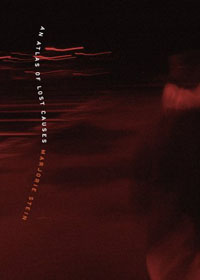Lingering Questions: A Review of Marjorie Stein’s An Atlas of Lost Causes
 An Atlas of Lost Causes
An Atlas of Lost Causes
by Marjorie Stein
November 2011, Kelsey Street Press
112 pages / $16.00 Buy from Kelsey Street Press or SPD
As the title suggests, An Atlas of Lost Causes is a bound collection (and a documentary of sorts) that includes map-like textual matter, in the form of poetry and illustrations. On the surface, it reads as a story about the death of a twin told through narrative poems and letters but the story unfolds as the living twin struggles to uncover the mysterious circumstances surrounding her sister’s death. Conversely, beneath the surface this collection is a relative confession told in reverse by an unnamed narrator and made evident through the “cartoon-like drawing[s]” and the “mere thought experiment” (61). In beautifully written prose-style vignettes, Marjorie Stein allows us to journey with her characters as the memories shift between the past and present, all the while tethered to the narrator’s search for self, now that she is without her twin.
Using everyday details and scenarios, the darkness inside each poem serves to tell the story of what can happen when the desire to learn the cause of death is more important than mourning the one who died. Each poem seems to attempt exploration of a life’s memories as they begin to erase themselves. At its core, An Atlas of Lost Causes is the story of a twin searching for her own identity and reason to live by retracing the life of her dead sister.
The narrator presents a layered flow of rational and irrational thoughts dotted with interruptions of childhood memories, past experiences that she believes are hers, but could easily have been her sister’s, and vague meditations that sometimes morph into hauntingly alluring images that pull the reader from place to place and moment to moment in a reversed mapping of death. Fueled by a barrage of interrogation style questions, each of the seven “chapters” gets us (and the narrator) closer to “Day Zero.” The questions in the book grow in number as they do in life when we contemplate an unexplained death. “What are these words but shadow puppets dependent upon an opposite wall?” “What is the story?” “Have we any further to go?” “Did she mean to?” “Intent or accident?” “How could I know what happened?” “What has this to do with the problem at hand?” “Who wants to be the last one in line when the lights go out?”
February 22nd, 2013 / 12:00 pm
